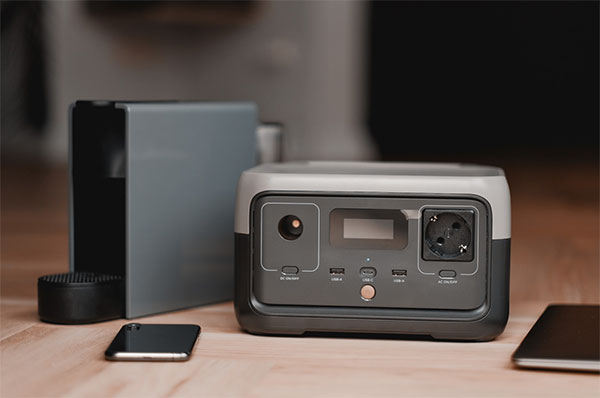Choosing the right backup power solution for your family’s needs is a critical decision that can significantly impact your comfort, safety, and convenience in the event of power outages. This process involves several steps: assessing your power requirements, considering the duration and frequency of the outages you experience, understanding the types of backup power sources available, and factoring in your budget and space constraints. The aim is to ensure that when the grid goes down, your family remains safe, and your essential appliances keep running smoothly.
Read on to learn how to select the right backup power solution for your family’s needs.
- Assess Your Power Needs
The first step in selecting a backup power solution is to understand your power needs. This involves listing the essential appliances and devices you need to keep running during a power outage. Typically, this list includes refrigerators, lighting, heating and/or cooling systems, medical devices, and communication devices.
By calculating the total wattage of these essential items, you can determine the size of the backup power system required to meet your family’s needs.
- Explore Backup Power Options
Once you understand your power requirements, the next step is to explore the various backup power options available. These range from traditional gasoline-powered generators to solar-powered systems and portable power stations. Each option has its pros and cons in terms of power output, runtime, fuel source, maintenance, and environmental impact.
In addition, portable power stations are becoming increasingly popular due to their convenience, ease of use, and environmental friendliness. These battery-powered units are quiet, emit no fumes, and can be used indoors. They’re ideal for powering smaller devices and appliances, making them a great option for short-term outages or as a supplement to larger backup systems.
- Consider Fuel Types And Availability
When choosing a backup power solution, the type of fuel it uses is a key factor, impacting everything from availability to maintenance. Common choices include gasoline, diesel, propane, and natural gas, each with distinct advantages and potential drawbacks. Gasoline and diesel, while widely used, may pose challenges in storage and access, especially during prolonged outages or emergencies. Propane, known for its longer shelf life, offers a more stable option. In contrast, natural gas-powered generators require a reliable connection to the gas line to provide a continuous supply.
Understanding the nuances of each fuel type is essential, as it allows you to make a decision that aligns with your specific needs and the reliability of your local fuel supply. For instance, if you live in an area where a propane provider such as Great Valley Propane operates, opting for a propane-powered generator can be a practical choice due to steady delivery options and long fuel shelf life. Meanwhile, if you have access to convenient services that make ordering or scheduling fuel cylinder deliveries quick and straightforward, that ease of restocking may guide you toward a different fuel option. By considering accessibility, storage, and the infrastructure already available to you, it becomes much easier to select a backup power solution that will perform when you need it most.
- Evaluate Runtime And Capacity
Assessing the runtime and capacity of a backup power system is essential to ensure it meets your needs during an outage. Runtime, or how long the system can operate under a certain load before needing a recharge or refill, varies widely among systems. Capacity, the maximum power output measured in watts or kilowatts, should also align with the energy demands of your essential appliances and devices.
It’s prudent to choose a system with a capacity slightly above your estimated needs to accommodate any unexpected increases in demand. This careful balancing act ensures your backup power solution can sustain your home’s critical functions for the duration of an outage. It includes supporting smart home technology. Consequently, it can provide you with peace of mind and reliability when it matters most.
- Understand Installation And Maintenance Requirements
The installation and ongoing maintenance demands of your backup power system are crucial considerations that can affect convenience, safety, and long-term reliability. Standby generators, offering substantial power, necessitate professional installation and periodic checks to maintain operational readiness.
In contrast, portable generators and power stations are designed for easier setup and lower maintenance, appealing to those seeking straightforward, user-friendly options. This distinction highlights the importance of the initial setup and the long-term care of your backup power system. This ensures it remains ready and reliable for when you need it most, without imposing undue burdens on your daily life or emergency preparedness efforts.
- Consider Environmental Impact And Noise
The environmental footprint and noise level of a backup power system are critical factors for households prioritizing sustainability and neighborhood peace. Traditional generators powered by gasoline or diesel are known for their significant noise output and emissions, posing challenges in residential areas and for environmentally conscious users.
In contrast, battery-based solutions like portable power stations and solar generators offer a greener, quieter alternative. These technologies produce minimal noise and no direct emissions, aligning with eco-friendly values and ensuring a peaceful coexistence with neighbors.
Choosing these environmentally friendly solutions can mitigate the impact of maintaining emergency power. They’re attractive for those aiming to minimize their carbon footprint and noise pollution.
- Plan For Budget And Space
Navigating budgetary and spatial constraints is essential when selecting a backup power system. For instance, high-capacity standby generators, while robust and reliable, come with a higher price tag and substantial space requirements for installation and operation. This can be a limiting factor for those with tighter budgets or limited outdoor space.
On the other hand, portable generators and portable stations offer a more economical and space-efficient solution. Their compact size and affordability make them accessible to a wider range of households, including those in smaller residences or with restricted outdoor areas. This flexibility allows for the adaptation of backup power solutions to various living situations, ensuring that families can find an option that fits their financial and spatial limitations.
Conclusion
Selecting the right backup power solution for your family involves a thorough assessment of your power needs, understanding the different options available, and considering factors such as fuel type, runtime, capacity, environmental impact, and budget. By keeping the information mentioned above in mind, you can find a reliable power source that meets your family’s specific needs and provides peace of mind during unexpected power outages.








Speak Your Mind